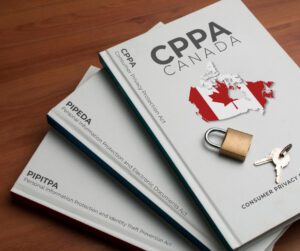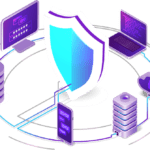
One issue that you may come across as a business owner is domain squatters. Domain squatting is one someone buys a domain that is very similar to your copyright name that may be used to impersonate your business entity. This can have many negative consequences such as stealing traffic from your actual business website or scamming your customers and bringing that negative attention to your business. If you come across a situation where you find someone is holding a domain that is closely associated with your business, here are some steps you can take to resolve the situation.
What happens if someone steals my domain
First let’s go over the formal definition of cybersquatting, this is the registering or use of an internet domain with bad intent to profit from the goodwill of a trademark belonging to someone else. If you find someone doing this you have the right and ability to get that domain taken down.
All top level domains based on copyright or trademarked words/phrases are protected under what’s called the Uniform Domain-Name Resolution Policy (UDRP). This means that you as the owner of the copyright or trademark have claims on domains registered in bad faith related to your intellectual property. Bad faith includes but is not limited to disrupting a competitor, profit from an assumed connection between the material and the owner of the domain or attempting to block the rightful owner from registering the name themselves.
What to do about a squatted domain
If you find a domain that you believe is registered in bad faith you should begin by either contacting the domain owner or filing a UDRP claim or court proceeding. When filing this claim you should choose an Internet Corporation for Assigned names and Numbers (ICANN) approved provider to oversee the proceedings. If you’ve never heard of it before, ICANN is a not-for-profit partnership dedicated to keeping the internet secure, stable and interoperable. They specialize in coordinating the Internet’s naming system, which is why this falls under their domain. You will need to provide evidence of the trademark or copyright ownership as part of the dispute.
How to prevent domain squatting
1) Register the domain before you need it
You want to buy your domain as soon as you are confident of what you are calling your business or copyright material. One tactic domain squatters use is to buy recently searched domains in the hopes of selling it back to the original searcher. To avoid this you want to avoid doing a lot of research and not buying the domain. Especially considering that domains are relatively cheap and it will save you a lot of time and money in the long run just to buy it upfront.
2) Register similar names
When people are entering your name they may have misspellings or use different extensions based on where they live or what they are used to. You want to buy a domain with multiple extensions such as .com, .ca, .org etc so that no one else can register these domains. Also, research common misspellings of your domain and consider registering them as well.
3) Purchase Domain Ownership Protection
This protection helps to ensure that you retain registration of a domain regardless of expiration dates or attempts to transfer. This is important because if you have a popular domain people will be constantly trying to buy that domain and if your credit card declines or you forget to renew your domain ownership for even a few hours you can end up losing your domain. Buying domain ownership protection helps to mitigate this risk.
4) Register a trademark
You maintain your legal right to a domain by having a registered trademark, not just claiming the domain. Therefore you want to make sure that you have a registered trademark with the patent office in your area.
5) Be the owner on record
If you are a business owner and you have someone else register the domain on your behalf, make sure they do it in your name and not their own. Otherwise, if you have a dispute later on they may be able to take your domain name if they originally registered it in their name.
How to get more free content
If you like this article and would like to read more of our content for cybersecurity insights, tips and tricks feel free to follow us on our social media. If you’re a struggling business owner who needs help in assessing their business’s cybersecurity posture feel free to take advantage of our free introductory assessment and we’ll help you figure out a game plan for keeping your company safe.





